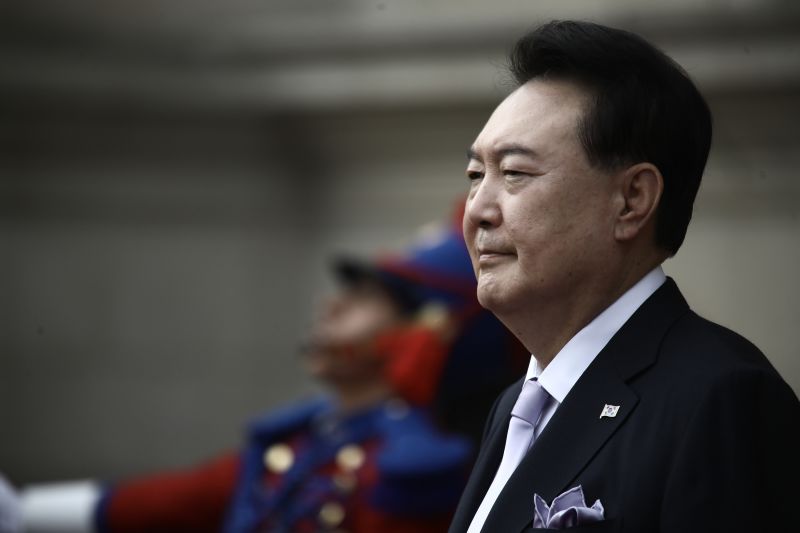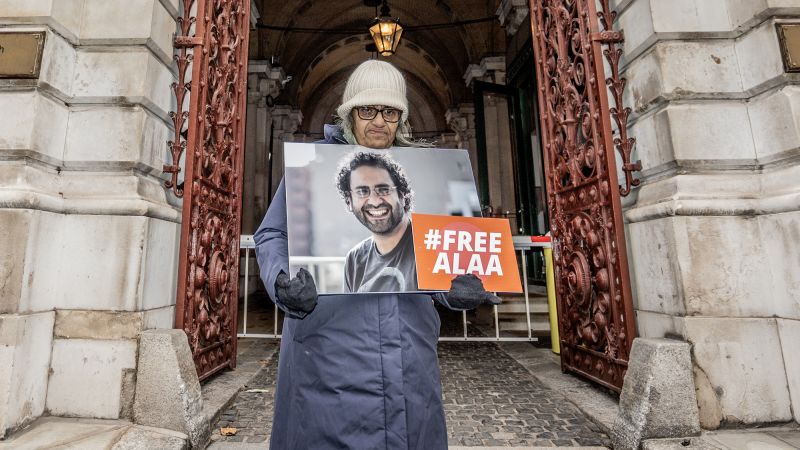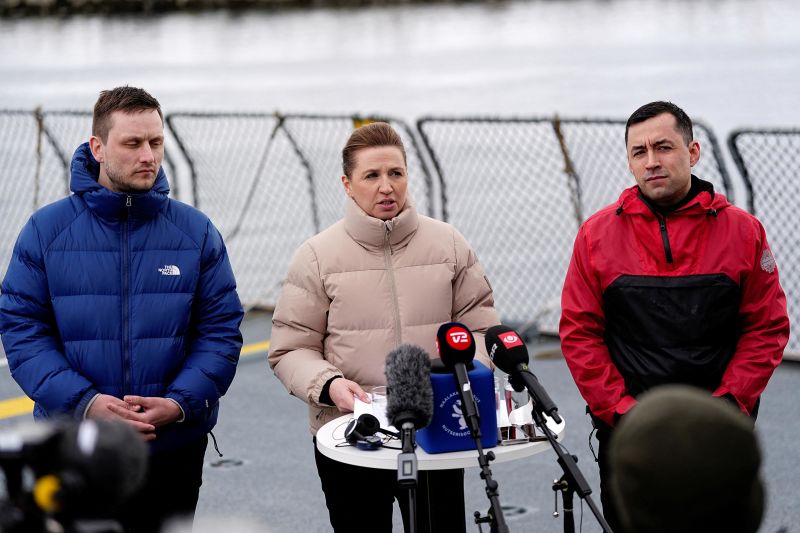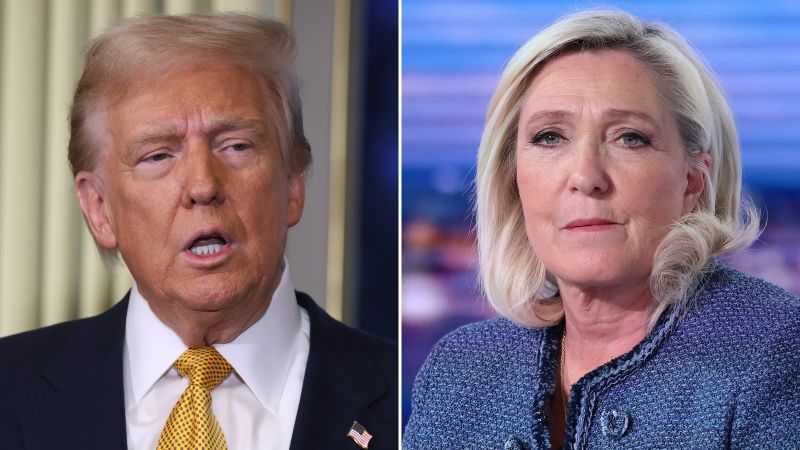Declaring martial law in a stable and boisterous democracy was an audacious gamble – and one that backfired spectacularly for former South Korean President Yoon Suk Yeol.
With Friday’s guilty impeachment verdict from the country’s Constitutional Court, the former prosecutor and conservative firebrand’s political career is likely over, especially because Yoon still faces criminal charges that could land him in prison for life.
Dramatic scenes from South Korea one Tuesday night in December showed military helicopters landing near the National Assembly in the capital Seoul, soldiers breaking through windows to try to prevent lawmakers from gathering, and protesters confronting riot police.
But the declaration was unsuccessful. TV stations and news media continued to report unhindered, people traveled freely and there were no mass arrests. When lawmakers voted to overturn Yoon’s surprise decree, security forces backed away.
In the months since, life in the South Korean capital essentially returned to normal. Businesses and restaurants were busy, streets crowded with residents and the city’s usual throngs of tourists – though large, loud demonstrations for and against Yoon were frequent as the court considered his case.
At one rally in the capital shortly after Yoon’s late-night declaration, teacher Kyung-soo said Yoon’s attacks on his opponents – including calling them “communist forces” – were “the behavior of a dictator and clearly clashes with the wishes of the people.”
Two years ago, Yoon was serenading then United States President Joe Biden with a rendition of “American Pie” by Don McLean at a White House state dinner and toasting their “ironclad” relationship.
As a nation still tries to understand why Yoon chose the extreme option of martial law, many are relieved that the fiasco may well be remembered as when democracy was threatened in South Korea, but ultimately survived.
Who is Yoon, and what was he thinking?
Yoon, a political newcomer, took office in 2022 with the conservative People Power Party, winning the presidential election by a margin of less than 1%.
He had spent almost 30 years as a prosecutor, leading high-profile investigations into corruption scandals that included a graft probe against former President Park Geun-hye that led to her impeachment and landed her in prison.
On the campaign trail, Yoon appealed to the country’s growing anti-feminist movement, and committed to abolishing the Ministry of Gender Equality and Family, which he claimed is unfair to men.
And while his predecessor Moon Jae-in favored dialogue with North Korea, Yoon took a tougher stance, promising to bulk up the South’s military, and even hinting he would launch a preemptive strike if he saw signs of a launch against Seoul.
In office, Yoon clashed fiercely with the opposition. Last year, opposition parties overwhelmingly won elections seen as a referendum on Yoon’s rule and took control of the National Assembly.
This left him a lame-duck president prevented from moving forward on legislation to cut taxes and ease business regulations, as his main rivals in the Democratic Party used parliament to impeach key cabinet members and hold up a budget bill.
It was this gridlock that Yoon used to try to justify his fateful decree.
In his speech declaring martial law, he labeled the opposition’s actions “clear anti-state behavior aimed at inciting rebellion” and referenced “threats posed by North Korea’s communist forces,” vowing to “eliminate anti-state elements.”
While Yoon had previously “claimed to advocate for fairness and common sense” as president, “his words and actions reflect a dictator’s,” said Park Sung-min, analyst at Min Consulting in Seoul.
“It seems like a political suicide.”
But Yoon’s eventual decision to rescind the decree showed he was “not a man who’s trying to seize power, or create a second term, or prolong his rule,” said Sydney Seiler, senior adviser for the Center for Strategic and International Studies.
“From the ruling party’s perspective, (he’s) trying to get the ball moving. He probably thought he had much more support within the ruling party for his actions than he actually did.”
Designer handbag at center of controversy
Observers say Yoon’s decision to declare martial law may have been more self-serving.
After taking office, he faced plummeting approval ratings over economic issues and a series of scandals involving his wife and political appointments that prompted calls for him to resign.
First Lady Kim Keon Hee was accused in 2023 of accepting a $2,200 Christian Dior bag as a gift – a potential violation of anti-graft laws. A secretly filmed video that surfaced online purported to show Kim receiving a cloud-blue “Lady Dior Pouch” from a Korean-American pastor.
The first lady is no stranger to controversy. Over the past few years, she has apologized for resumé-padding and has faced allegations ranging from academic plagiarism to stock manipulation, which the presidential office has repeatedly denied.
The main opposition Democratic Party accused Yoon of “concealing suspicions” surrounding his wife, and the mounting public backlash even caused a rift between Yoon and senior members of his party.
“Yoon tends to act more on instinct than rationality, embodying a reckless ‘lonely hero’ persona,” said Ahn Byung-jin, professor at the global academy for future civilizations at Kyung Hee University.
“He perceives the current situation as an existential crisis, especially with attempts to impeach members of his cabinet, cut the budget, and push for special investigations against his wife. He believes he is seriously cornered.”
What comes next for Yoon?
Yoon is now the second president to be ousted by the Constitutional Court – and the shortest-serving elected leader in the nation’s democratic history.
And his legal troubles are not over. In a separate case, Yoon was arrested in January on charges of leading an insurrection, then released in March after a court canceled his arrest warrant – though it did not drop the charges.
Insurrection is one of the few criminal charges a president does not have immunity from – and is punishable by life imprisonment or death, although South Korea has not executed anyone in decades.
The indictment had alleged that Yoon’s imposition of martial law – during which he sent troops to parliament, with commanders testifying they were ordered to “drag out” lawmakers – was an illegal attempt to shut down the National Assembly and arrest politicians and election authorities.
For some South Koreans, such as pastor Kwak Dong-seok, Yoon has worked to address economic issues, and is correct in his claims of “anti-state” forces in the country.
“Martial law is often criticized as excessive, but in some cases, it has been justified as a measure to prevent the establishment of a communist regime,” said Kwak, who organizes regular conservative rallies and political activities.
But others say Yoon’s decision shows how far removed he was from public sentiment.
“Korean democracy started late, but we made it by ourselves and are very proud of it,” said school principal Kim Hyeon. Yoon’s attempt at martial law demonstrates that “the president’s way of thinking doesn’t match our society,” she said.
Many say the botched martial law and subsequent democratic proceedings show that South Korean democracy is alive and well.
“Korean democracy has the awareness and capability to prevent any impulsive actions by a dictator,” said Park from Min Consulting.





